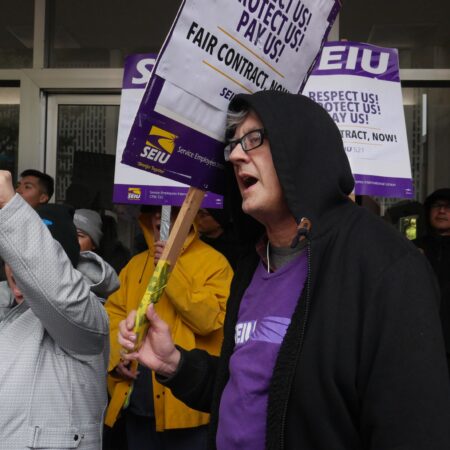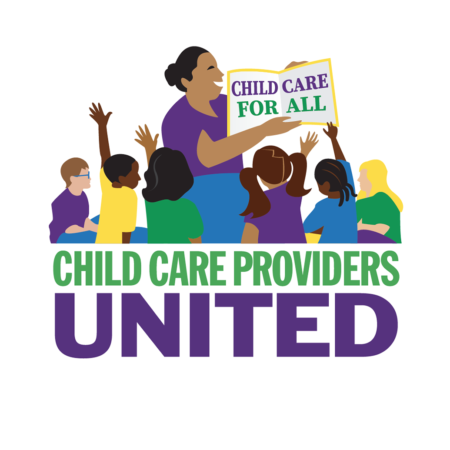5,000 child care providers have been forced out of business this year
A coalition of 77 organizations, committed to improving child care access in California, sent a letter to Governor Newsom, President pro Tempore Atkins, and Speaker Rendon today, urging the state leaders to take immediate action to save California’s child care system, and thus support California’s frontline workers as well as a just and equitable economic recovery. “We know that without COVID-19 relief and permanent economic protections for child care providers, real economic recovery in California will be impossible,” they wrote.
The letter calls for state leaders to ensure that every child has access to quality early learning and care, and that family child care providers, and all early educators, receive the pay, respect, and resources they need as essential workers to provide this invaluable service during this critical time.
Satomi Rash-Zeigler, President of the San Diego Coalition of Black Trade Unionists said: “If California fails to address its child care crisis, we not only risk compromising our response to COVID-19, but we also risk compromising an entire cohort of children who won’t receive the care and attention they need to thrive.”
The coalition of non-profit, labor, and social justice organizations stressed that California’s child care system has been in crisis since long before the state went into lockdown in March. Many family child care providers experience persistent financial hardship due to low pay and lack of access to affordable health coverage. Quality child care can also be hard to find or too expensive for working families, all while more than 1.8 million children who are eligible for state-subsidized care fail to receive it and fall through the cracks.
Since January of this year, over 5,200 child care providers in California have been forced to close their doors with no help or intervention from the state. One of the critical lessons learned from the 2008 financial crisis is that without immediate action, these providers will never again be able to open their doors to serve California children most in need.
“As one of the largest childcare agencies in California, we work on the ground with thousands of family child care providers every day. We have seen firsthand the financial struggles providers are facing, leading to closures that ultimately reduce the access low income families have to care in our state. Family Child Care providers have been the heroes during this pandemic with most staying open risking their lives to ensure that essential workers have the child care they need to keep the rest of us safe. Now the state has thrown up their hands placing an effective tax on the low-income women of color who serve as the backbone of California’s childcare system. It’s time our state leaders fulfill their promises to our children and early educators to support quality, affordable childcare for working families through the course of this pandemic and beyond.”
—- Dr. Michael Olenick, CEO, and President at The Child Care Resource Center (CCRC)
The letter specifically asks for:
- Adequate reimbursement rates for children participating in distance learning
- Financial support for providers who have to close their doors following potential COVID-19 exposure so they can reopen
- Restoration of the unilateral cut to providers’ pay by continuing to cover families’ portion of fees for children who receive child care subsidies when families keep children home to prevent COVID-19 spread or exposure
With California’s schools closed due to COVID-19 restrictions, child care providers’ value in helping close achievement gaps is only becoming more evident. Child care providers are some of the only in-person educators right now. They are critical to making distance learning work and combating educational deficits, with no guarantee they’ll be reimbursed.
“Family child care providers find solutions to difficult problems, and we have long known that their endless support is a cornerstone in our ability as working parents to be able to successfully balance our career and our family lives.”
Jean Cohen, South Bay Labor Council Interim Director
Child care providers have been rightfully deemed essential workers, but the state’s investment is needed to ensure that they can continue to support their communities who rely on access to care.




